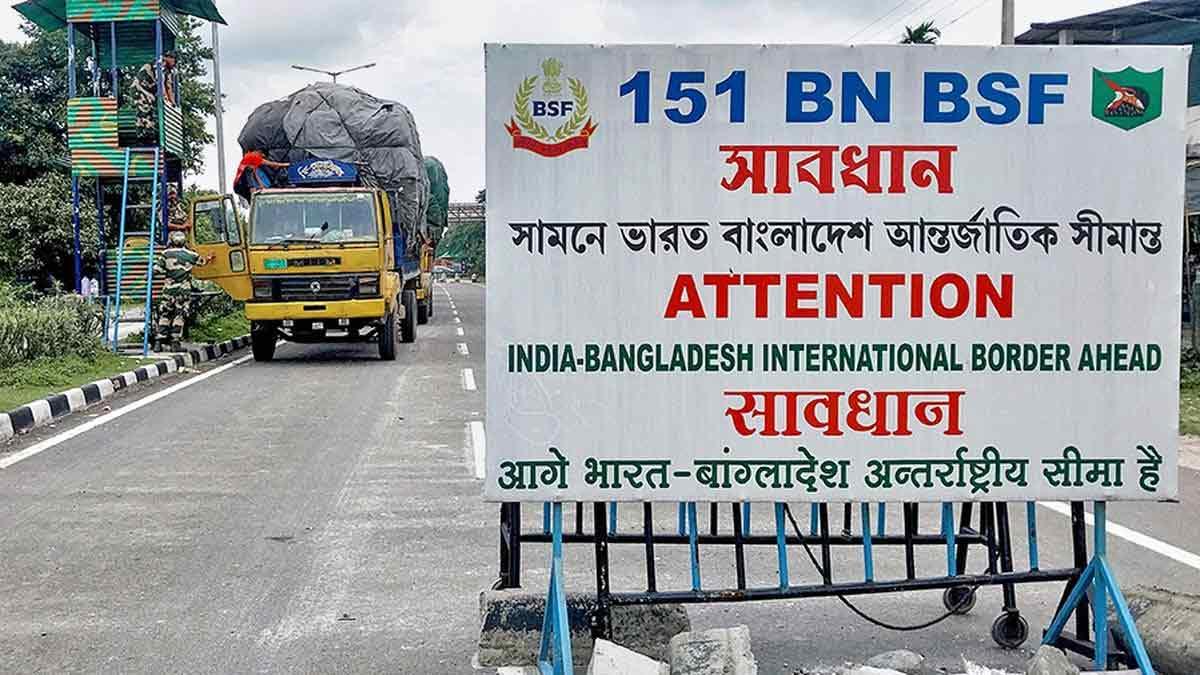Weeks following a restriction on the flow of clothes exports from Bangladesh through land ports, India has now put restrictions on admitting jute commodities from its eastern neighbor through land borders.
The Directorate General of Foreign Trade (DGFT) released a notice on June 27, 2025, stating that jute and jute products from Bangladesh could no longer be imported through Indian land or seaports — with the lone exception of the Nhava Sheva seaport in Mumbai.
The directive, according to official sources, has been applied in line with the immediate implementation. It covers "jute and allied fibre/products from Bangladesh." Bangladeshi duty-free access to India's market for jute products currently in place has been claimed by Indian authorities to be unfairly undercutting local producers because of over-supply of subsidies and dumping.
"Bangladesh jute has the benefit of duty-free access to India. The Indian jute industry, however, had long been hurt by the negative effect of dumped and subsidised Bangladesh exports of jute products – yarn, fibre and bags –," a government official said. India had previously imposed anti-dumping duties (ADD) on jute imports, but the action fell short as Dhaka continued to provide government-backed subsidies, reports added.
In spite of India's persistent complaints and diplomatic efforts with Bangladesh, sources add that Dhaka has made only minor changes to its export incentives. Specifically, India complains that Bangladesh continues to fervently promote the export of "value-added jute products," which erodes the competitiveness of Indian jute manufacturers.
India's jute sector, which gives employment to almost 400,000 workers employed in states such as West Bengal, Bihar, Assam, Odisha, Andhra Pradesh, Tripura, and Meghalaya, has experienced decreasing farmer revenues and lower mill production as a result of these subsidised imports. "Artificially low prices resulting from subsidized imports directly and negatively affected the revenue of jute farmers," an informant clarified.
The recent order includes a broad spectrum of jute and flax products such as flax tow and waste, jute and bast fibre fabrics, yarn from jute or equivalent fibres single, woven fabrics of flax, and unbleached fabrics of jute. Although these bans will indirectly impact Bangladeshi shipments to Nepal and Bhutan, re-export of these items from Nepal and Bhutan into India is specifically prohibited.
This fresh ban came after another step on May 17, when India prohibited Bangladeshi clothing from entering across its land borders, and suspended some other specified items from entering Northeast India through neighboring land ports.
Justifying the new policy change, an Indian official said, "Bangladesh cannot be allowed to continue with discriminatory trade practices that injure the livelihood of Indian farmers and mill workers in an industry that is the economic backbone of dependent rural areas. Market access granted by India in good faith cannot be exploited at the expense of India's economic interest."
They contend that the dumping of low-cost, subsidised jute items from Bangladesh has forced local prices lower, resulted in idled mill capacity, and resulted in massive layoffs — especially rural communities whose livelihoods are tied to the jute industry.
Read also| Report: U.S. Strikes on Iran Left Nuclear Sites Intact


















